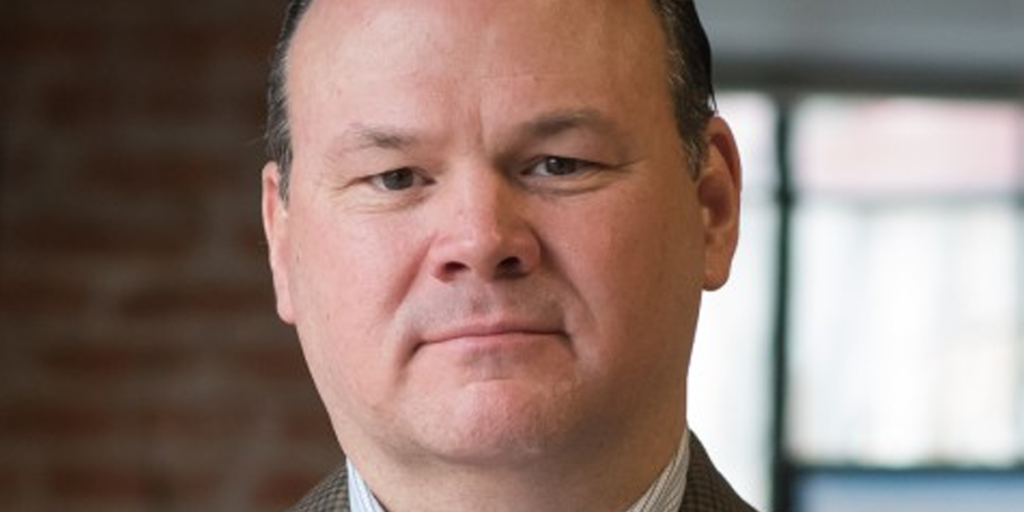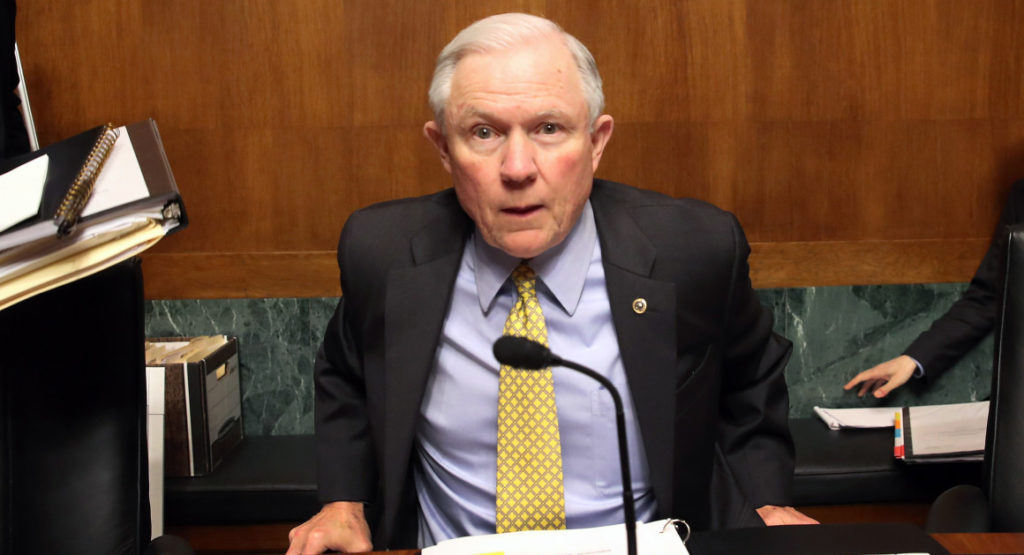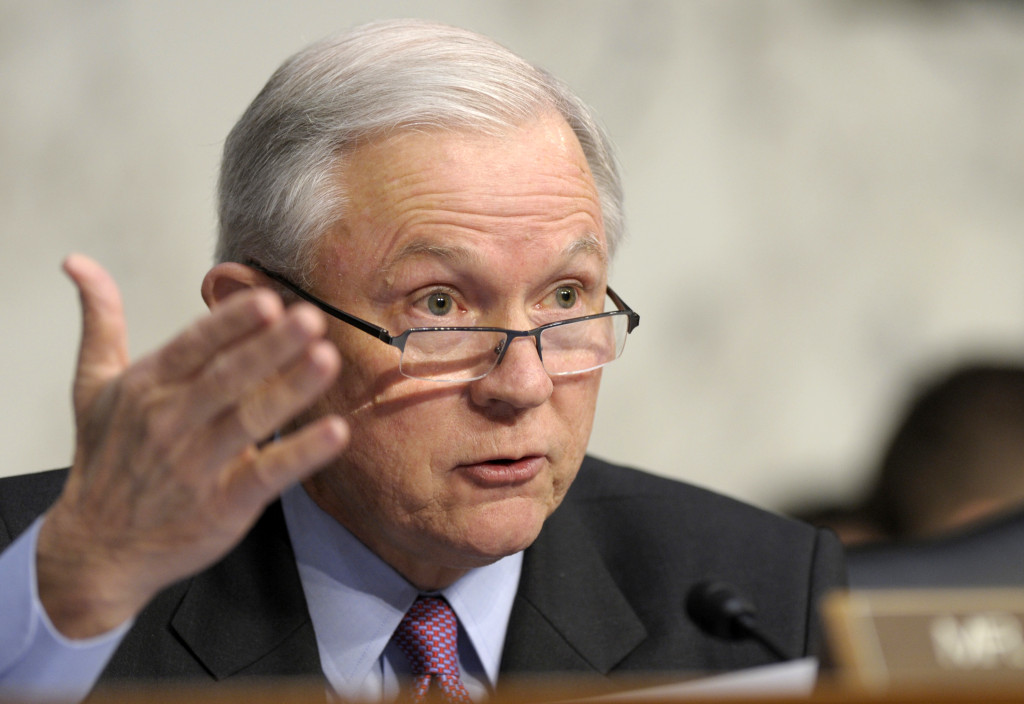Senate panel approves William Barr, Donald Trump’s AG pick

The Latest on William Barr’s nomination to be attorney general (all times local): 1 p.m. The Senate Judiciary Committee has approved President Donald Trump’s pick for attorney general. William Barr’s nomination was approved along party lines Thursday. It now heads to the Senate floor, where Barr is expected to be confirmed. Barr, who served as attorney general between 1991 and 1993, would succeed Attorney General Jeff Sessions, who was pushed out by Trump last year. Democrats have largely opposed Barr’s nomination, saying they want a stronger commitment from him to fully release special counsel Robert Mueller’s final report. Barr says he will release as much as he can under the law. Opponents have also cited a memo Barr wrote to the Justice Department before his nomination in which he criticized Mueller’s investigation for the way it was presumably looking into whether Trump had obstructed justice. __ 12:12 a.m. The Senate Judiciary Committee is poised to approve William Barr’s nomination to be attorney general, a vote that is likely to be mostly along party lines as Democrats have questioned how transparent Barr will be once special counsel Robert Mueller’s Russia investigation concludes. Once the committee approves the nomination Thursday, it will head to the full Senate, where Barr is expected to be confirmed. That vote could come as soon as next week. Barr would replace Attorney General Jeff Sessions, who was pushed out by Trump last year. Barr previously served as attorney general from 1991 to 1993. Democrats and many Republicans have said Mueller’s final report should be fully released. Barr has said he will be as transparent as possible under Justice Department regulations, but many Democrats are skeptical. Republished with permission from the Associated Press
Former senior aide to Donald Trump, Jeff Sessions takes gig with DC consulting firm

Rick Dearborn, former White House Deputy Chief of Staff, has been named partner at the Cypress Group, a D.C.-based strategic advisory and advocacy firm. Dearborn will expand Cypress’ Advisory practice, which works with clients to develop short- and long-term strategic plans to promote government relations as a center of opportunity within an enterprise. “Rick has worked directly with congressional committee chairmen and other high-ranking policymakers to achieve solutions and truly knows how to get things done,” said Pat Cave, the firm’s founding partner. “Rick will serve as a senior advisor to the largest Cypress clients in the energy, technology, health care, finance, and defense sectors.” News of Dearborn’s White House departure surfaced in December, when White House Chief of Staff John Kelly confirmed Dearborn would be stepping down to pursue a career in the private sector. “Rick loyally served the president for two and a half years and brought tremendous energy to the White House staff,” Kelly then said in a statement. “He’s a super guy and it breaks my heart to see him leave, but I look forward to his continued personal friendship and support for the president’s agenda.” Dearborn, who served as chief of staff for former U.S. Sen. Jeff Sessions for 12 years, joined President Donald Trump‘s White House in January. There, he oversaw political operations, public outreach and legislative affairs and has been an integral part of Trump’s effort to manage relations on Capitol Hill. Well respected among Republican leadership and their aides, he also had previous executive branch experience, having served as Assistant Secretary of Energy for Congressional and Intergovernmental Affairs.
Jeff Sessions vows ‘proper’ action on possible Hillary Clinton investigation

Attorney General Jeff Sessions offered testimony to lawmakers on Capitol Hill Tuesday, where he pushed back on requests to immediately appoint a special counsel to investigate Hillary Clinton and the Clinton Foundation, saying said the Department of Justice (DOJ) still needs to “study what the facts are” before taking action. “I would say ‘looks like’ is not enough basis to appoint a special counsel,” Sessions told Ohio-Republican Rep. Jim Jordan at the House Judiciary Committee when he was asked why the DOJ has yet to appoint special counsel when it “looks like” wrongdoing took place. Sessions, however, did not, rule out that a special counsel could be appointed should the proper standards were met. Jordan’s questions came in the wake of a Monday night response to an inquiry made by Judiciary Committee Chairman Robert Goodlatte. In a letter, the department revealed it was weighing proposals to name an special independent counsel to investigate the FBI’s handling of the probe into Hillary Clinton‘s use of a personal email server for official and classified business. The DOJ also confirmed it was contemplating a probe into the foundation of former president Bill Clinton and its ties to companies involved selling US uranium rights to a Russian state company. While he did not have an immediate decision, Sessions promised the committee he would decide quickly whether or not to take account. “Do I have your assurance that these matters will proceed fairly and expeditiously?” Goodlatte inquired. “Yes, you can, Mr. Chairman, and you can be sure that they will be done without political influence and they will be done correctly and properly,” Sessions answered. “We will make only decisions that are right and just and not going to use the department to unlawfully advance political agenda.” Trump has repeatedly criticized his Justice Department for not aggressively investigating Clinton. He said recently officials there “should be looking at the Democrats and that it was “very discouraging” they were not “going after Hillary Clinton.” He also went on record saying the “saddest thing is that because I’m the president of the United States, I am not supposed to be involved with the Justice Department. I am not supposed to be involved with the FBI.”
Democratic oppo file on Jeff Sessions leaked months ago, WikiLeaks says

Democrats’ strategy to stonewall Alabama Sen. Jeff Session’s appointment to Donald Trump’s cabinet has been laid out for months, according to emails published by whistleblower site WikiLeaks. In May, an email between two Democratic Party staffers outlined the party’s “top hits” for Trump’s potential VP picks, including Sessions and fellow Sens. Bob Corker and Joni Ernst. None of those three “tier 1” politicians ended up being Trump’s running mate, though Sessions’ has been picked for Attorney General by the incoming administration. The staffer warns that Sessions’ document “contains the N-word,” previewing one of the lines of attack the party has used against the 20-year Senate veteran during the lead up to his confirmation hearings. Attached to the email are two documents combining to 85 pages cataloging Sessions’ comments on everything from foreign policy and the proposed Muslim ban, to women and racism. The “top hits” are split up into sections detailing why Sessions is “bad for Latinos,” “bad for African-American,” and “bad for women,” among many other groups. Given the contents of the document, Sessions’ confirmation hearings can be expected to include questions about the constitutionality of some of Trump’s comments, whether Sessions’ will enforce the Supreme Court’s ruling on same-sex marriage, and how he will treat states’ rights in regards to things such as marijuana legalization.
What to look for in Alabama on Super Tuesday

Alabama voters go to polls Tuesday as part of Super Tuesday contests in 12 states. Hillary Clinton, Ted Cruz, Marco Rubio and Donald Trump all plan stops in Alabama in a last-minute hunt for votes before Tuesday’s election. Republicans and Democrats will also name their picks in congressional and state races. Here’s a look at what to watch for and a look at a few of the key races on Tuesday: • • • CONGRESS On Tuesday, Rep. Martha Roby, R-Montgomery, faces Tea Party challenger Becky Gerritson in the second congressional district that includes Montgomery and the Wiregrass. Roby is perhaps best known for being on the congressional panel investigating Benghazi and has been a vocal critic of delays and problems at Veterans’ Affairs hospitals in the region. Roby said she shares voter frustration with “Washington doublespeak.” “There are so many politicians out there that are so afraid of losing their jobs that they forget to do their jobs. My job is to listen to the people, study the issues, make decisions that are in the best interest of the people I represent and to be honest about it,” Roby said in an interview. Gerritson is the founder of Wetumpka Tea Party, one of the state’s largest and most active tea party organizations. She appeared on the national radar with emotional congressional testimony in 2013 regarding Internal Revenue Service probes of conservative political groups. “We need a true conservative in leadership for District 2,” Gerritson told voters at a campaign stop. “We see year after year, election after election, we are promised that things are going to change and they don’t,” Gerritson said. In South Alabama, Rep. Bradley Byrne is in a rematch with Dean Young, the bombastic real estate developer he bested three years ago for the open congressional seat. Byrne has a heady mix of endorsements ranging from the NRA, the U.S. Chamber of Commerce and Sen. Jeff Sessions. Young is running an ad of clipped-together news segments from their last race. News commentators refer to Byrne as the “establishment” candidate eight times in the 30-second spot. While any anti-establishment surge could hurt incumbents, challengers from the party’s far right, like Young and Gerritson, struggle under a compressed campaign season while facing opponents with superior name recognition and financial firepower. Five-term Sen. Richard Shelby is running an aggressive campaign, unloading a portion of a $19 million war chest, as he looks to a sixth term in office in the midst of the insurgent voter mood. Shelby faces off with four lesser known challengers in the GOP primary, most notably Jonathan McConnell, a former Marine who now runs a ship security business putting former Marines on vessels. • • • PUBLIC SERVICE COMMISSION PRESIDENT One of the few statewide races on the ballot is the Republican primary for president of the Public Service Commission. The race pits incumbent Twinkle Andress Cavanaugh against former PSC member Terry Dunn. • • • BRING PHOTO ID This will be the first presidential race under Alabama’s new photo identification requirement for voting. Alabama requires voters to show photo identification at the polls such as a driver’s license, passport, an Alabama non-driver ID, a university student ID or identification issued by the federal government. A person without photo ID can submit a provisional ballot, but it won’t be counted unless they bring in the required identification. • • • TURN THE BALLOT OVER Voters should remember to look on the back of the ballot. The presidential candidates and numerous delegates to party nominating conventions appear on the front of the ballot, while state and local offices are on the back. Republished with permission of the Associated Press.
Alabama, Florida lawmakers urge Congress to act on ailing Apalachicola river basin

U.S. Sens. Jeff Sessions and Richard Shelby joined with Florida counterparts Marco Rubio and Bill Nelson urged a Senate budget panel to take on what they called “ongoing mismanagement” of the Apalachicola-Chattahoochee-Flint (ACF) and Alabama-Coosa-Tallapoosa (ACT) River Basins on the part of the U.S. Army Corps of Engineers on Wednesday. The senators asked the Senate Appropriations Subcommittee on Energy and Water Development to include language related to the ACF in the Fiscal Year 2016-2017 budget in a letter addressed to the committee. The document already includes language regarding the ACT. “In light of the Corps’ September 30, 2015, release of the Draft Environmental Impact Statement” related to the basement, the senators wrote, “Congressional action is needed given the current proposal would continue to severely restrict water flows for downstream users. “The ACF’s water supply is the lifeblood for many Alabama and Florida communities, and supports multiple industrial and domestic uses. For example, both Florida and Alabama rely on the ACF for navigation and the production of hydroelectric power that supplies efficient, low-cost energy for many throughout the region. In addition, Alabama and Florida depend on the ACF for irrigation and agricultural purposes, flood control, and water quality. Without a reliable and consistent freshwater flow from the ACF, entire communities and their respective economies are left to the decisions and priorities of those upstream,” they wrote. They lawmakers said the river accounts for $200 million in economic impact annually on the region, and directly employs some 85 percent of the local workforce there. Recent ecological and water management mishaps have caused severe damage to basin, and to the surrounding economy. “Because of each state’s vital need to ensure that the ACT and ACF River Basins are properly managed with each of their interests appropriately considered, we urge the Subcommittee to include language in any omnibus appropriations vehicle that ensures that management of both of these critical basins are not left to the whims of an unaccountable federal bureaucracy, but instead is properly determined and agreed upon by each state’s governor,” the bipartisan group of senators concluded. See the full text of the letter here, courtesy of Rubio’s congressional office.
Conservative dissent against Obama refugee resettlement plan continues to mount

As President Barack Obama continues to seek public support for yet another controversial foreign policy initiative, in Alabama, his plan to raise the cap on refugees allowed into the country is instead garnering stern reproach from elected officials. The president, via Secretary of State John Kerry, recently rolled out a plan to gradually increase the annual cap on refugees allowed into the country from foreign soil to 100,000, up from 70,000 today. Alabama’s junior senator Sen. Jeff Sessions, on Monday took to the rostrum in the Capitol to excoriate Obama’s plan, saying the U.S. had already taken in some 1.5 million immigrants from Muslim nations since the attacks of September 11 and that given our federal deficit, that is plenty for the time being. “The U.S. has already taken in four times more immigrants than any other nation on Earth. Our foreign-born population share is set to break every known historical record,” inveighed Sessions. “Ninety percent of recent refugees from the Middle East living in our country are receiving food stamps and approximately 70 percent are receiving free healthcare and cash welfare. All of the nearly 200,000 refugees the Administration is planning to bring over the next two years would be entitled to these same benefits the moment they arrive.” “Since we are running huge deficits, every penny of these billions in costs will have to be borrowed and added to the debt,” Sessions added. He is far from alone in his opposition, especially among fellow southern Republicans. Congressman Bradley Byrne on Tuesday issued an announcement detailing his recent letter to the State Department citing concerns – echoed by Sessions and conservative columnist Rich Lowry in Monday’s New York Post among others – surrounding the nation’s limited capacity for vetting the incoming refugees. “Terrorist groups have made clear they intend to use the refugee process to infiltrate our country, and I have serious concerns about increasing the number of allowed refugees,” wrote Byrne in a letter to the department’s Bureau of Population, Rufugees, and Migration. So far, the U.S. has only accepted 1,500 refugees from Syria since the civil conflict began there four years ago. Millions have been displaced, largely looking to resettle in Turkey – which has taken in some 2 million Syrian refugees – or in continental Europe. Germany for instance, expects to take in up to 1 million refugees this year. The U.S. announced plans earlier this week to contribute some $419 million in aid to European and Middle Eastern countries which have taken the brunt of the mass exodus out of war-torn Syria.
Alabama man to lobby for carbon fee in Washington

Montgomery’s own Bryan Seigneur, a computer programmer with the Alabama Law Enforcement Agency, will advocate for what he calls a “Carbon Fee and Dividend” to Alabama’s congressional delegation in Washington. Seigneur is a member of a group called the Citizens’ Climate Lobby. The group will send Seigneur and others to D.C. in a push to convince national legislators to adopt a $15-per-ton fee on greenhouse gas emissions that contribute to global warming. That fee would increase to $25 per ton after one year, and continue to ramp up $10 a year in order to discourage the use of carbon-emitting industrial processes used in producing fossil fuels. Alabama is an unlikely place to begin with its Republican-dominated legislative delegation. But although it may seem like a stretch to think free-market conservatives such as Sen. Jeff Sessions and U.S. Rep. Marth Roby, will buy into his plan, which evokes the erstwhile “cap and trade” scheme popular a few years ago to many observers, Seigneur says it’s all about getting the ball rolling. Prior to being elected to Congress, Rep. Gary Palmer, then president of the Alabama Policy Institute, wrote an opinion piece “Cap-and-Trade by other means” that highlights estimated cost that cap-and-trade legislation or regulations would have on the state. He cited the higher across-the-board energy costs and business development issues related to proposals such as the one Seigneur is pushing, and advocated that lawmaker stand up for those he believes would be stuck paying the bill. “We believe that our proposal is a conservative proposal,” Seigneur told the Montgomery Advertiser recently. “It is part of the role of government to protect the rights of its people and the right of their property. When that is endangered by specific things occurring and harming the environment in the future, and threatening real reduction in GDP out one or two generations, then the role of government is to reduce the harmful behavior.” “We have one primary interest, and of course that’s creating the political will for the climate,” Seigneur said. Advocates are buoyed by comments by Pope Francis in a recent church encyclical that called for greater stewardship of natural resources in the face of what he called a serious threat posed by climate change. “I think the Pope needs to continue to study this,” Sen. Sessions told The Associated Press late last week. “I think it will be given respectful treatment, but I don’t think it’s going to change a lot of votes. According to the Advertiser, Seigneur’s itinerary also calls for a meeting with Sen. Richard Shelby, who has a strong history of advocating against policies dealing with emissions that he thinks will drive up energy prices for Alabama families and businesses. Among the actions taken by both Alabama senators, Shelby and Sessions, was joining 40 others to co-sign a letter decrying the Obama administration’s proposed rule that dealt with emissions, voting against cap-and-trade and being outspoken advocates against the EPA.


